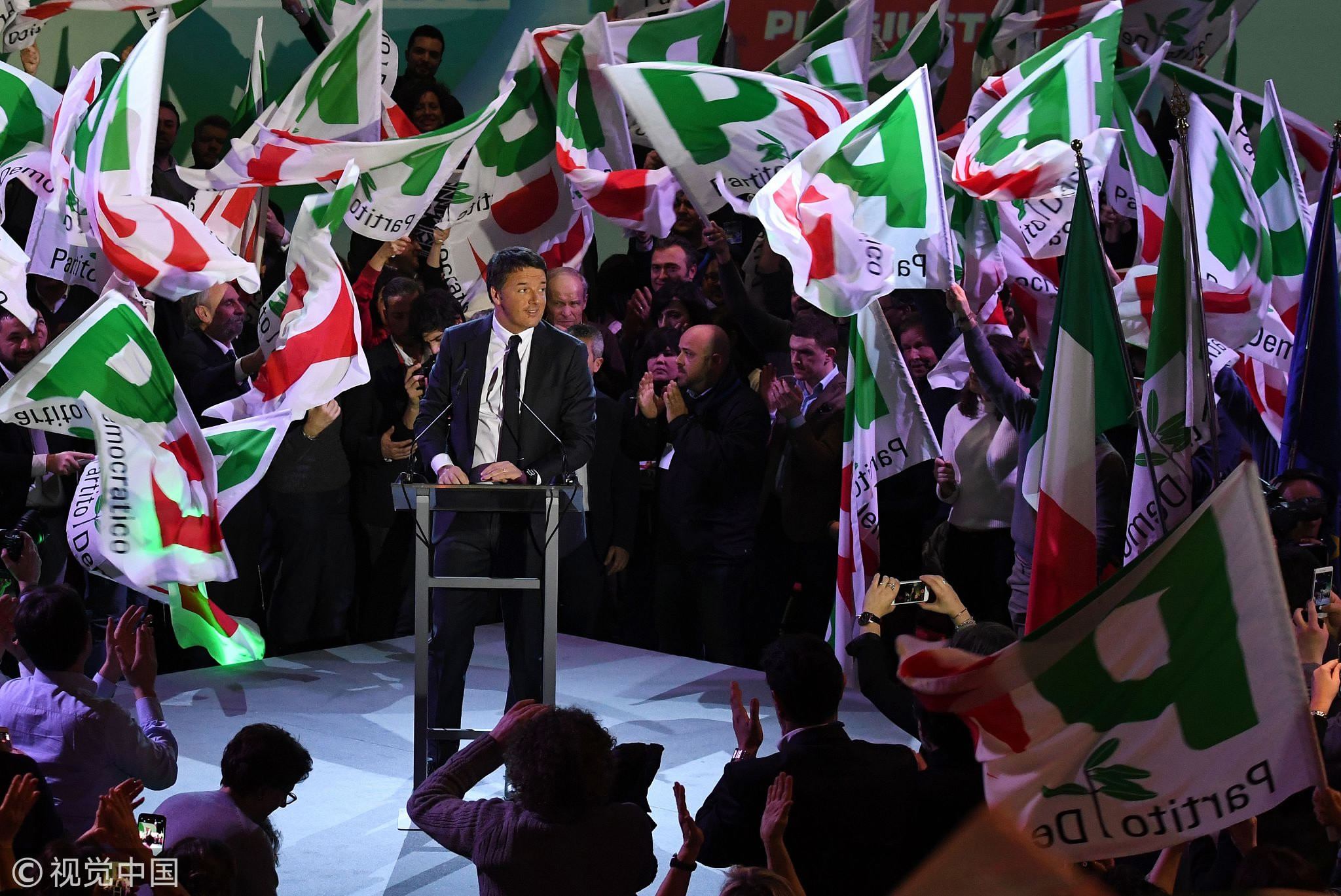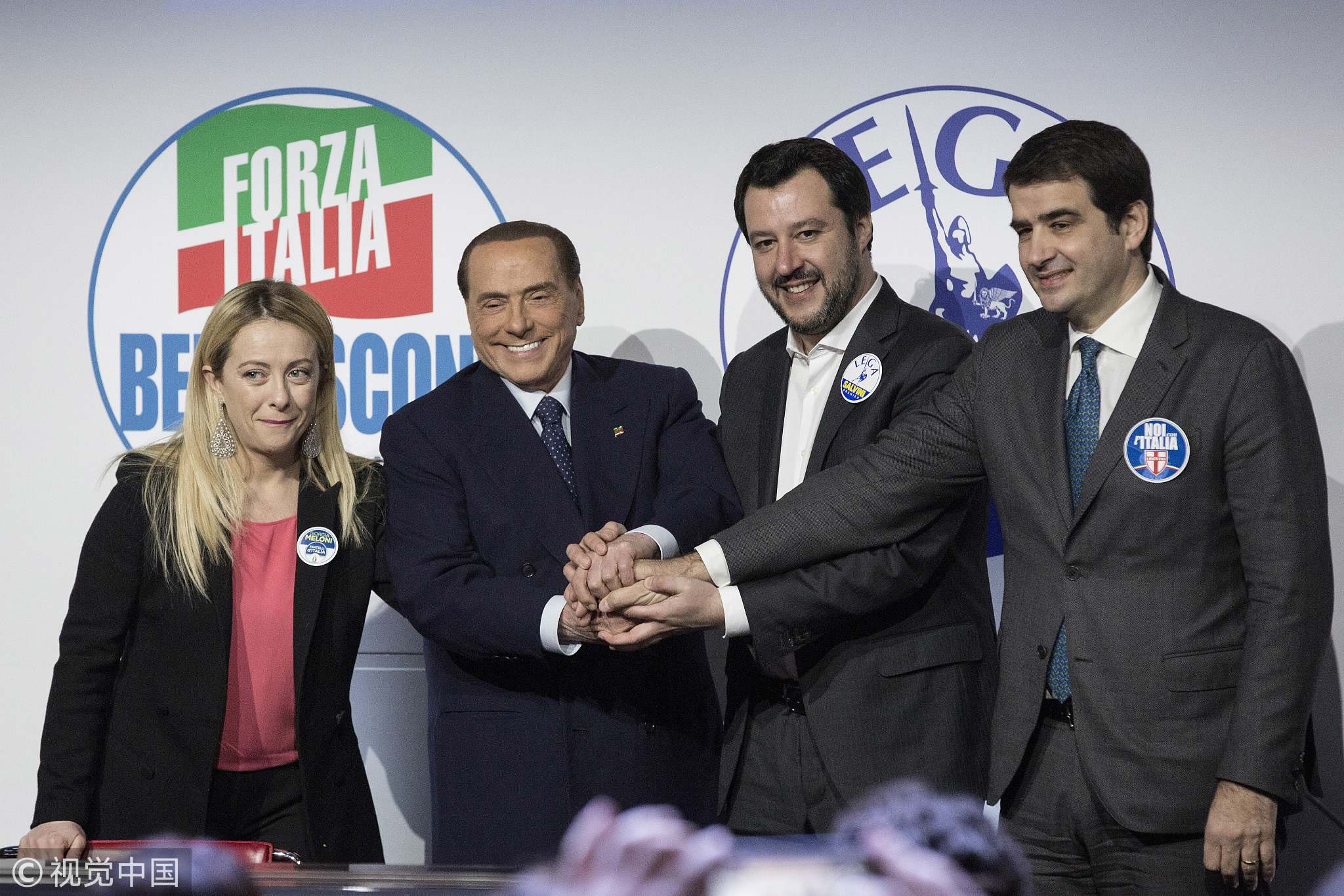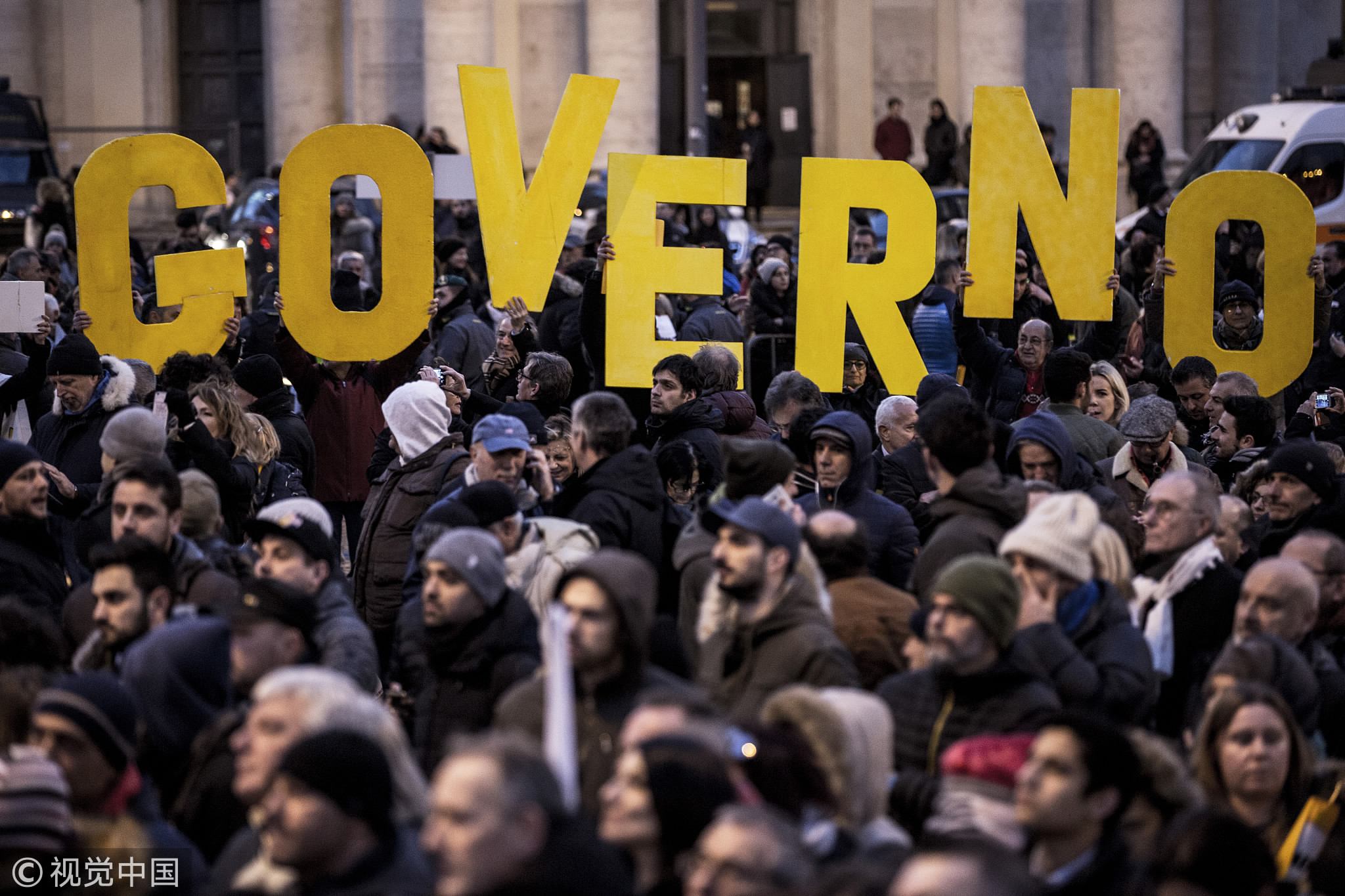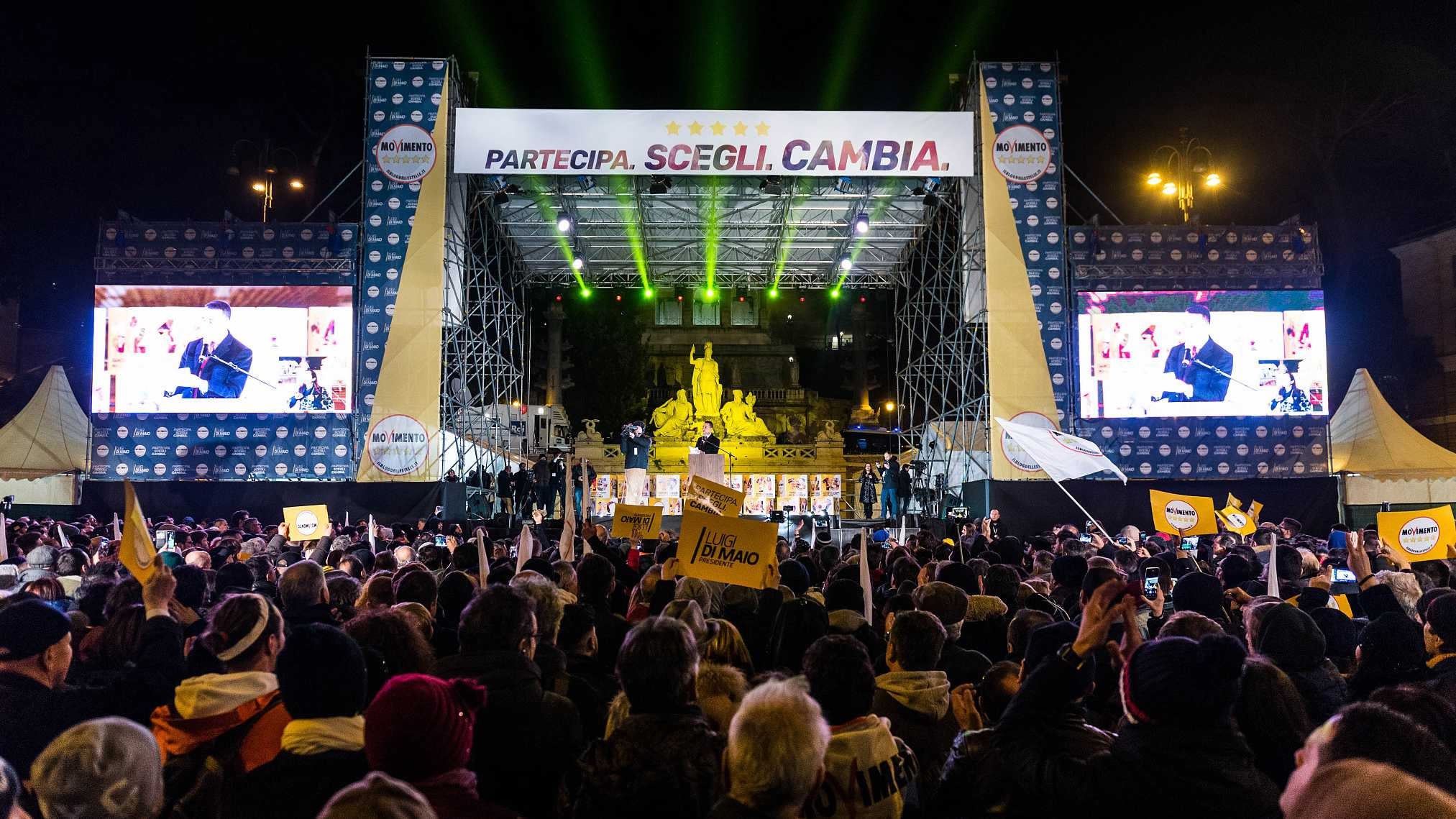The global spotlight will be on Italy on Sunday, the day when
elections will be held to determine who will govern the country for the next few years.
The outcome of the vote is not obvious. There is widespread concern that no election winners will come out of the electoral consultation and that none of the political coalitions will reach the 40 percent threshold – a percentage useful for the formation of a stable government.
There are three political coalitions with candidates for the new government: the center-left, led by
the "Democratic Party" of Matteo Renzi; the center-right led by "Forza Italia," the anti-European movement "League" and "Brothers of Italy," with former prime minister
Silvio Berlusconi as its frontman; and the
"Five Star Movement" born as an anti-establishment movement.
Among the small parties, there are some on the far-left and "Casa Pound" which is a far-right movement that could lead to some surprises in terms of consensus and voting results. The forces in the field are therefore very fragmented and even the coalitions have within them clear divergences on key issues such as Europe, immigration and the economy.

Former prime minister and head of the center-left Democratic Party (PD) Matteo Renzi speaks to supporters during the last election campaign meeting in Florence on March 2, 2018./VCG Photo
Former prime minister and head of the center-left Democratic Party (PD) Matteo Renzi speaks to supporters during the last election campaign meeting in Florence on March 2, 2018./VCG Photo
At the end of February, European Commission President Jean-Claude Juncker said he was "worried about the outcome of the Italian elections," and that "we need to prepare for the worst case scenario."
Despite assurances from Italian leaders, it is evident that there is fear among the highest European organizations on what could happen in Italy on March 5.
It’s probably for this reason that Forza Italia, leader of the center-right coalition, wanted to send a reassuring message to Europe with the candidacy of the current president of the European Parliament Antonio Tajani. This candidacy is also a signal that Forza Italia wants to send to its anti-European and xenophobic allies such as the Lega and Fratelli d'Italia.
If no winner emerges from the polls, there are two possible scenarios and, for both, the President of the Italian Republic Sergio Mattarella would play an important role in mediation.

Giorgia Meloni, leader of the far-right Brothers of Italy party, from left, Silvio Berlusconi, leader of the Forza Italia party, Matteo Salvini, leader of the euroskeptic party League, and Raffaele Fitto, leader of Us with Italy party, pose for photographers during a center-right coalition general election campaign rally in Rome, Italy, on Thursday, March 1, 2018.
Giorgia Meloni, leader of the far-right Brothers of Italy party, from left, Silvio Berlusconi, leader of the Forza Italia party, Matteo Salvini, leader of the euroskeptic party League, and Raffaele Fitto, leader of Us with Italy party, pose for photographers during a center-right coalition general election campaign rally in Rome, Italy, on Thursday, March 1, 2018.
The first scenario is a great coalition that at the moment would seem impossible because nobody wants to "betray" its voters by allying themselves with the opponent, even if the alliance could only be on some programmatic points.
The second scenario would be new elections, with a temporary government that would correct the current electoral reform. Despite the declarations of political parties that do not want to make agreements with opposing coalitions to form a government, at the moment the only viable path would seem to be great coalition. But the great coalition would give life to a weak government that would have little chance of moving with determination, considering the differences in political vision.
A policy of continuity with Europe will be surely safeguarded, but Italy will have less political weight. Relations with Brussels will not only be conditioned by the fragile government that will emerge from these elections, but also by the anti-European sentiment widely spread among Italians of any political group. This fragility does not benefit anyone because Italy is fundamental in the Mediterranean geopolitical scenario.
One of the most relevant elements of this election will be the strong growth of the neo-fascist Casa Pound party which could enter the Italian Parliament if they exceed the three percent threshold. According to the most authoritative polling institutes, the center-right would be at the top between 36 percent and 39 percent, the Five Star Movement between 25 percent and 27 percent, the center-left – currently in government – would collapse at 22 percent.

Supporters of the Five Stars Movement hold banners with the writing, government and Join, Choose and Change, during the closing rally of the Italian electoral campaign in Piazza del Popolo on March 2, 2018 in Rome, Italy. /VCG Photo
Supporters of the Five Stars Movement hold banners with the writing, government and Join, Choose and Change, during the closing rally of the Italian electoral campaign in Piazza del Popolo on March 2, 2018 in Rome, Italy. /VCG Photo
Regarding the reaction of financial markets after the vote, the concerns are not so much on the short-term effects or the possibility of political instability after the vote, but on the relative medium-term effects in the case of substantial changes in economic policy. International financial operators hope that the political reforms will continue, and that no demagogic fiscal measures will be adopted. The financial markets have remained calm until now because the Italian electoral system does not allow extreme and potentially destabilizing scenarios.
However, we cannot rule out a bit of nervousness close to the vote, but it seems unlikely that Italy can be considered a factor of potential destabilization for the region. If this context reassures the European partners, these elections will not contribute to responding to the anti-European feeling of the Italians, a sentiment destined to last over time and, probably, destined to expand.
(Luca Ribustini is a media professional based in Rome, Italy. The article reflects the author's opinion, and not necessarily the view of CGTN.)





